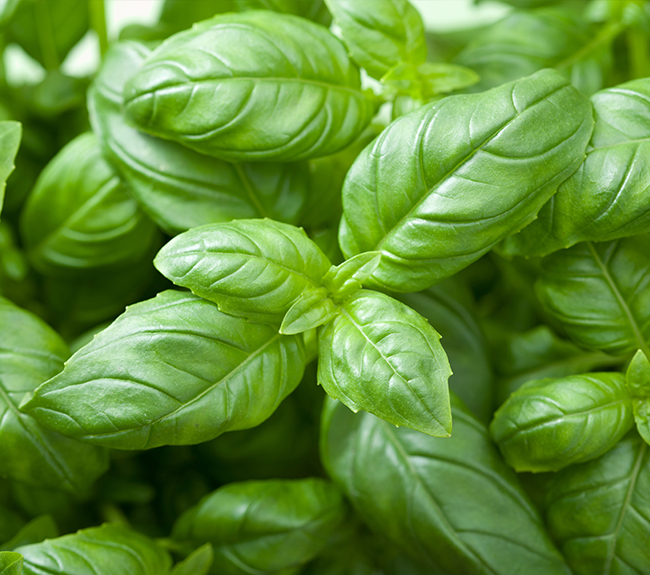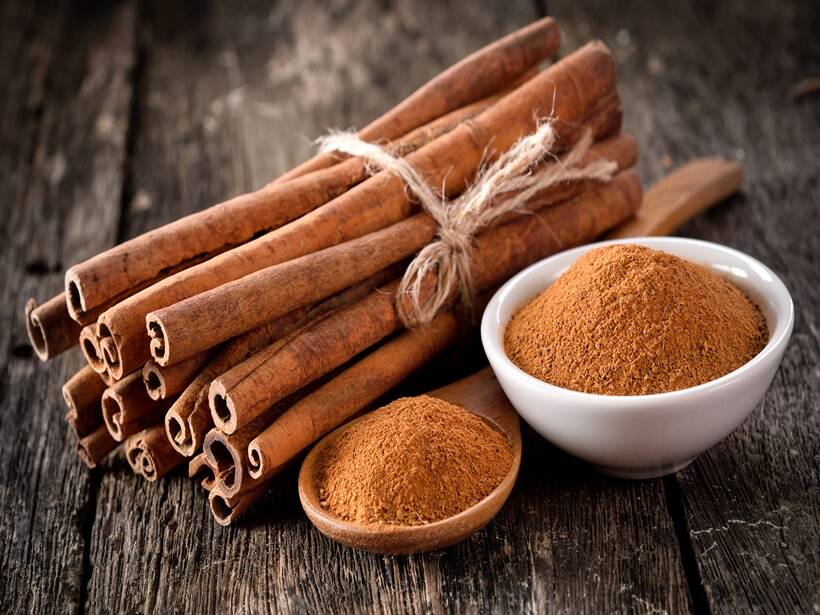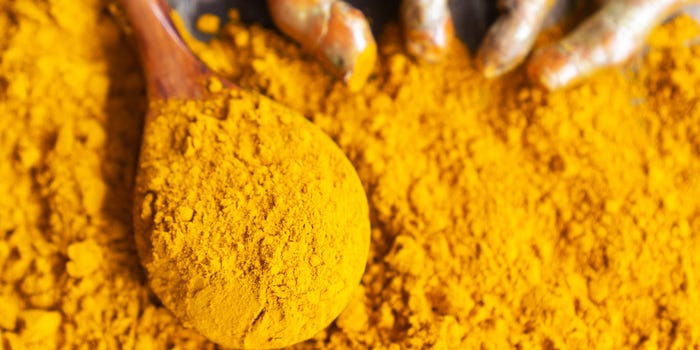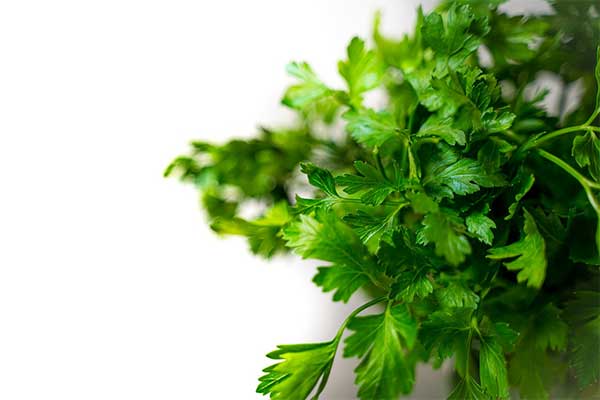You probably never thought that spices and dogs could go in the same sentence. Typically we use spices to add a burst of flavor to the food which would otherwise be bland and unappetizing. Surely, dogs don’t need these extra bursts of flavors, especially when they are already ready to eat just about anything they can get their paws on.
However, where we are mistaken is the belief that spices are only good for their aromas and that extra kick they add to the flavor. Traditionally spices were used for their medicinal properties. Traditional Chinese medicine has used plants for their healing powers for thousands of years and has used spices and herbs in particular.

The holistic properties of spices are not just limited to humans, they can extend to our furry friends as well. However, including spices in our dog’s diet is slightly trickier than it is for ours. Humans and dogs are different creatures altogether and so our food tolerances vary a great deal as well. What is considered safe and healthy for us might have the complete opposite effect on our dogs and so you have to exercise utmost caution when including anything new in their diets.
If you’re someone who has chosen to go down the route of preparing your dog’s meals yourself rather than relying on the commercially available foods, you’ll want to include these wondrous spices. But just like any responsible dog parent, you’ll want a complete rundown of which spices are considered safe for your dog.
That’s what we’re here for. We’ve compiled a guide on spices for you to ensure that you make the right choices for your dog. Read on to find the answers to all your spice-related questions.
Why include spices in my dog’s diet?

It is natural to wonder just how beneficial spices can be? Do spices contain enough benefits for us to make the extra effort of including them in our dog’s diet?
They do! Introducing spices into your dog’s meals can lead to an improvement in their overall health. The benefits that your dog will get from these spices include improved brain and mental health, stronger bones and muscles, and a much stronger immune system, to name a few.
However, spices also come with a disclaimer. You should take caution when you introduce new spices and herbs to your dog. Not all of them are safe, and sometimes dogs react differently even to the safe ones. So the best way to go about introducing the spices is to do so slowly and steadily. Make sure to keep a close eye on your dog and monitor them for any adverse reactions. If your dog is A-Okay after consuming the spices, you’re good to go. If they show any adverse effects that range for over a day, make sure to show your dog to the vet and also stop feeding them that particular spice.
What spices can dogs eat?
Garlic

Garlic isn’t a popular choice when it comes to dogs and is a bit controversial. However, its bad reputation is a slight bit unfounded. If given to your dog in moderate amounts, garlic can prove to be beneficial for our dog’s health and is often used as a naturally occurring antibiotic.
So where does garlic get this bad repute from? It mainly stems from the mistaken belief that garlic and onions are interchangeable when in actuality there are not. Onions are rich in thiosulphate which causes severe health problems for dogs, however, in garlic, the thiosulphate content is so low that it is almost untraceable!
Garlic is known to aid the immune system to fight off illnesses that may come your dog’s way and also helps in regulating their blood pressure. Furthermore, garlic has antibacterial and antifungal properties as well. It is also known to keep your dog parasite and flea safe.
However, you must remember not to give your dog too much garlic. Also, it is advisable to avoid feeding powdered garlic to your dog since in its powdered form it is extremely concentrated and will not suit your mutt.
Basil

This fragrant herb is a popular spice and is as common as it can be in our households. This spice is easy to grow and has a list of health benefits that make it a great inclusion in our dog’s diet.
Basil is rich in all the essential minerals and vitamins as well as electrolytes, phytonutrients, and beneficial oils. It is also a known antioxidant which means it helps fight diseases and is great for your dog’s overall health. Basil also has anti-inflammatory and anti-microbial properties.
The beta-caryophyllene present in basil is known to reduce the painful symptoms of arthritis in dogs and eases their discomfort. It is also known to be a remedy for stress and anxiety for dogs as well.
You can add chopped basil to your dog’s meal or you can make a spray with basil and vetiver which can serve as aromatherapy for your dog.
Cinnamon.

Known for its unique taste, this spice is known to be one of the most anti-oxidant-containing foods there are. The content of antioxidants present in this spice works well in flushing out all the bad toxins in your dog’s system such as aflatoxins.
Cinnamon also has anti-inflammatory properties which do a great job in reducing the effects of diabetes on your dog. It also helps in fighting off sepsis.
The anti-fungal properties present in cinnamon are also great for your dog’s oral hygiene. They keep your dog’s teeth strong and clean, prevent bad breath, and fight off halitosis.
Cinnamon is also known to be a mood booster. It gives your dog an energy boost in turn increases your dog’s alertness and brain function.
You can add a sprinkle of cinnamon (a little less than a teaspoon) to your dog’s food or you can treat them to a cinnamon biscuit once in a while.
Ginger

Ginger is another tasty spice that is laden with health benefits for our dogs. It can be given to your dog in a variety of ways as well. You can chop it up or grind it into a paste and mix it in your dog’s food. Whatever way you serve your dog ginger, they will benefit from it.
Ginger has anti-bacterial and anti-inflammatory properties. This spice is known to be great for our dog’s digestion by improving the process by which minerals and vitamins are absorbed by your dog, from their food. It is also known to soothe nausea and ease the pain that is a result of an upset tummy.
Ginger is also known to be a great circulation booster for our dog’s system. Holistic vets claim that ginger can be used to fight off cancer and other life-threatening diseases.
Your dog might find fresh ginger a bit too strong for their liking so you can try ground ginger or even dried ginger.
Turmeric

Another spice that comes from a root, turmeric is a great remedy for a variety of health issues.
Turmeric is high in fiber and so is great for dogs who are suffering from digestion issues. It boosts your dog’s metabolism and also helps obese dogs lose weight. Beyond the digestive system, turmeric is also great for the brain, joint, and cardiovascular health.
It is also known to protect our dogs from illnesses such as cancer and also helps them fight off the possibility of a stroke, anemia, and arthritis. It also works wonders for their memory strength.
You can add powdered turmeric to your dog’s food or you can opt for turmeric supplements that have been designed especially for cats and dogs.
Parsley

Parsley is a spice that not only tastes good but also comes with a long list of health benefits for both dog and owner. Parsley has high vitamin, mineral, fiber, and antioxidant content. It improves your dog’s immunity and helps fight serious diseases, flushes out toxins from their systems, and also improves your dog’s organ function.
Parsley can also be used to improve your dog’s oral hygiene especially bad breath and serves as a natural toothpaste.
Parsley is the healthiest in its dry form and if freshly picked it is the richest in mineral and vitamin content.
Conclusion
Spices are a great inclusion in our dog’s meals. They are rich in all the elements that ensure that our dogs live a long and healthy life and what more can a dog parent want? However, just as is the case with any other food, you need to be sure about which spices are safe and which are not. If you need your dog for the wrong spice, you can end up causing health problems that could otherwise have been avoided. You also need to know just how many of the safe spaces needed to be added. Moderation is key and too much of even healthy foods can prove to be unhealthy. Always remember A healthy dog is a happy dog.
